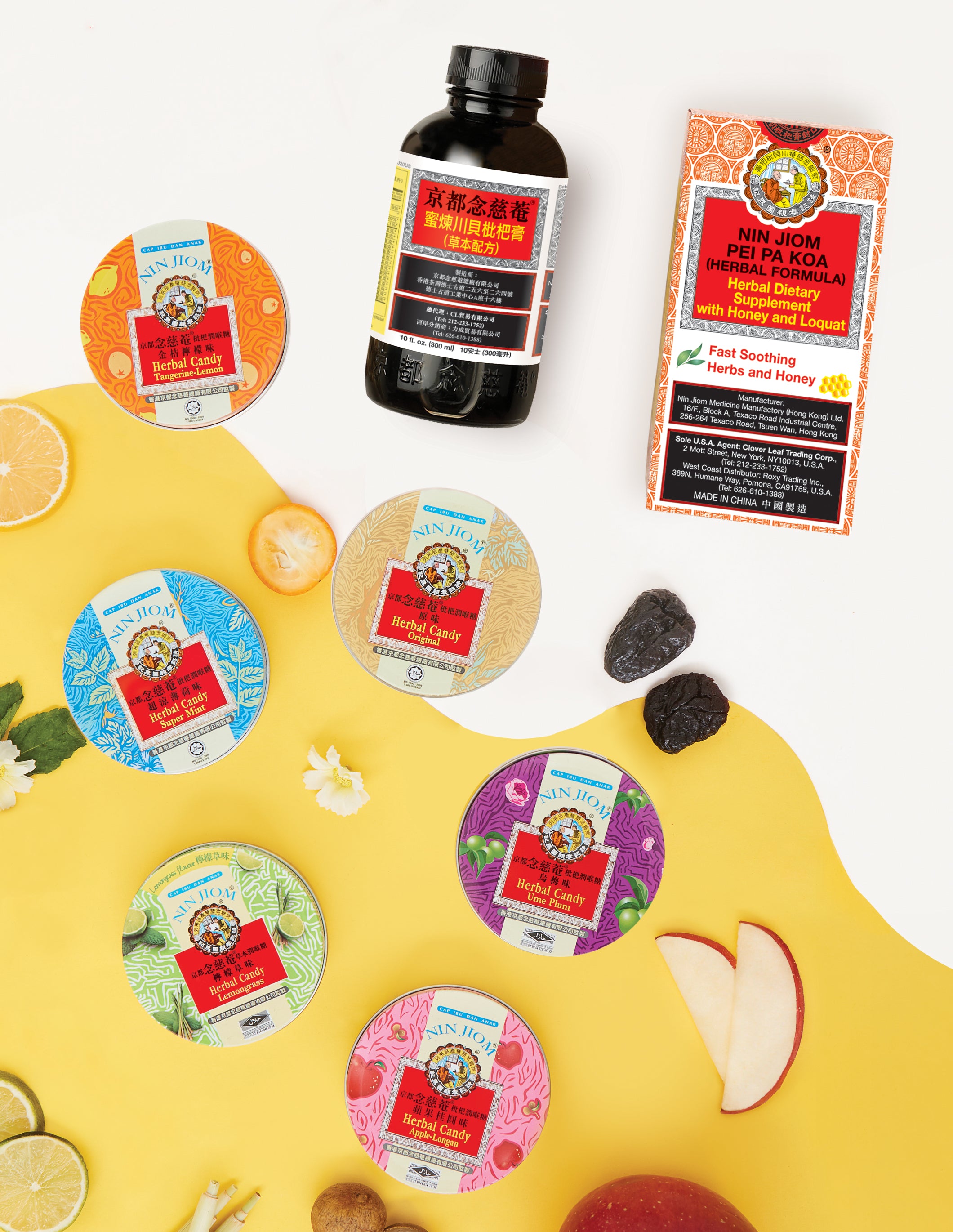Frequently Asked Questions
Have a question? We have the answers. If you have any further enquiries or comments, please don't hesitate to get in touch with us.
Q1: IS IT NECESSARY TO STORE NIN JIOM PEI PA KOA IN A REFRIGERATOR AFTER IT IS OPENED?
Placing an opened Nin Jiom Pei Pa Koa bottle in a cool place will not affect the product quality. However, storing an opened Nin Jiom Pei Pa Koa bottle in the refrigerator and serving it chilled can improve its taste, especially during hot weather.
Q2: HOW LONG CAN NIN JIOM PEI PA KOA BE STORED?
If Nin Jiom Pei Pa Koa is kept in a tightly sealed container and stored in a cool place, its quality can be preserved for up to three years (from the Production Date).
Q3: IS THE FUNCTION OF NIN JIOM PEI PA KOA (NO SUGAR ADDED FORMULA) THE SAME AS THE ONE WITH HONEY?
Yes, both are the same. Nin Jiom Pei Pa Koa (No Sugar Added Formula) is tailor-made for those who are concerned with their sugar intake.
Q4: WHY DO HEADACHES AND PAINS NEAR NECKS AND SHOULDERS APPEAR DURING THE EARLY STAGES OF INFLUENZA?
This is due to the toxic influences caused by external factors entering the body, circulated by bladder meridian. Consequently, the ‘qi’ in meridians or channels is blocked and the shoulders become stiff, resulting in pains and headaches.
Q5: WHAT DOES ‘KESOU’ (COUGH) MEAN? WHAT IS THE DIFFERENCE BETWEEN ‘KE’ AND ‘SOU’?
‘Ke’ refers to coughs with sound but without phlegm, while ‘sou’ means coughs with phlegm. Most people experience coughs that have both sound and phlegm, making ‘kesou’ a common term. That is why Nin Jiom Chuan Bei Anti-cough is useful for relieving coughs and eliminating phlegm – the major ingredients are ‘Bulbus Fritillariae Cirrhosae’ and ‘Radix Platycodonis’, which help to clear phlegm in the lungs and stop coughing.
Q6: WHY DOES REDUCING PHLEGM HELP RELIEVE COUGHS?
Coughing is the body’s natural reaction for expelling harmful substances from the windpipes and lungs, similar to sneezing and blinking. Therefore, coughing is only a symptom. Its real cause may be due to foreign substances, such as bacteria, germs or microorganisms. Through coughing, we expel phlegm containing viruses and bacteria from our body. In Nin Jiom Traditional Chinese Medicine, it is believed we should focus first on eliminating phlegm from the windpipe to cure coughing instead of suppressing coughs with medicine.
Q7: APART FROM REGULATING THE LUNGS, WHY SHOULD WE ALSO NOURISH OUR LIVER, SPLEEN AND STOMACH DURING THE LATER STAGES OF INFLUENZA?
In Chinese medicine, the lung is a ‘metal’ organ that restrains the liver, which is a ‘wood’ organ. So problems in our lungs affect the liver. The liver has cleansing functions and promotes digestion. If it does not function smoothly, it can affect the spleen and stomach and can lead to abdominal pains, nausea, vomiting, abdominal distensions and diarrhoea. In the later stages of influenza, our problems are not just confined to the lungs but involve the liver, spleen and stomach. Nin Jiom Traditional Chinese Medicine products such as Livereen (Bupleurum and Scutellaria combination) can nourish the liver, and regulate the spleen and stomach are often recommended.
Q8: WE ARE OFTEN TOLD THAT TRADITIONAL CHINESE MEDICINE USED FOR TREATING ILLNESSES SHOULD BE TAKEN AFTER MEALS. HOWEVER, FOR SOME TRADITIONAL CHINESE MEDICINE, SUCH AS TONICS, SHOULD BE TAKEN BEFORE MEALS. WHY THE DIFFERENCE?
The medicine for boosting health should be taken before meals because it is better absorbed by our bodies. This is because some food substances can reduce the efficacy of the tonics. Note that a ‘before meal’ label means that we should take the medicine thirty minutes to one hour before a meal and not right before one. Some medicines need to be taken after or during meals because they can be bad for empty stomachs or may have a better effect when consumed with food.

